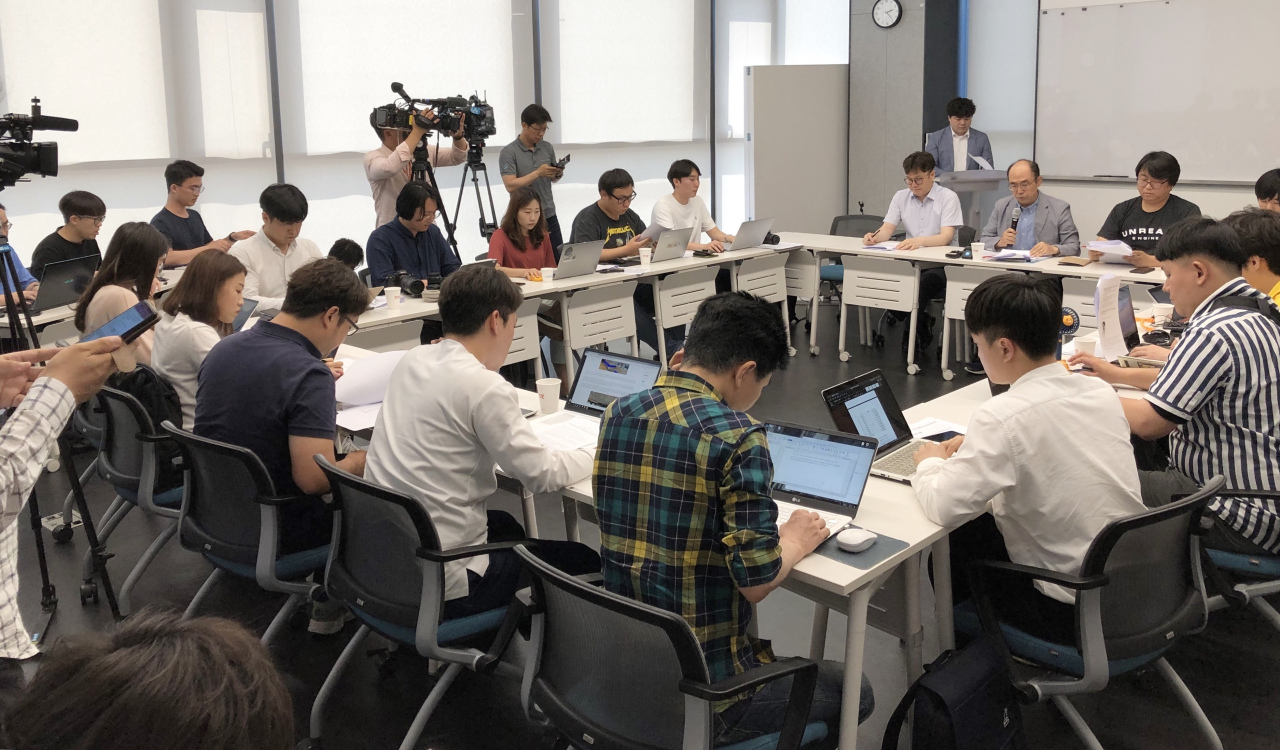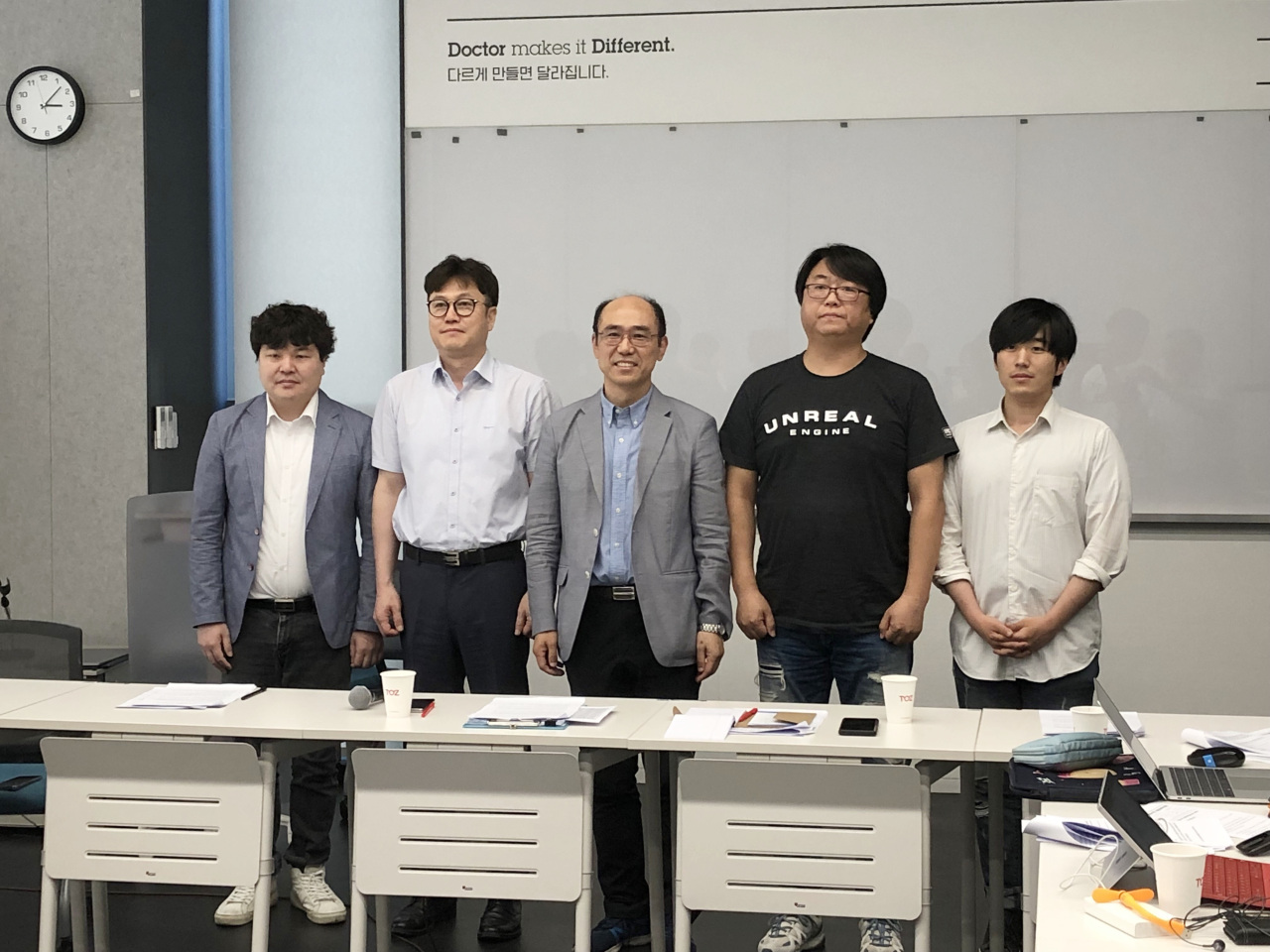Is video games tax coming down the pike?
Conflict of interest claims rise as game society labels gaming disorder adoption as plot to milk tax out of game companies to fill doctors’ pockets
By Lim Jeong-yeoPublished : June 25, 2019 - 15:18
The World Health Organization’s adoption of the classification of gaming disorder as a clinical condition has cast ripples across the worldwide gaming industry since May.
The pushback continued in Seoul on Tuesday, with a committee opposing the disorder’s domestic adoption hosting an emergency press conference to criticize the tens of billions of won in government budget thus far assigned to research aimed to “prove” the side effects of video gaming. They accused the government of plotting to milk “addiction tax” from the game companies.
Professor Wi Jong-hyun of ChungAng University headed the event as the committee chairman and president of the Korea Academic Society of Games.
The pushback continued in Seoul on Tuesday, with a committee opposing the disorder’s domestic adoption hosting an emergency press conference to criticize the tens of billions of won in government budget thus far assigned to research aimed to “prove” the side effects of video gaming. They accused the government of plotting to milk “addiction tax” from the game companies.
Professor Wi Jong-hyun of ChungAng University headed the event as the committee chairman and president of the Korea Academic Society of Games.

Wi cited a data sheet compiled by the committee showing that in 2014 the government reportedly allocated some 37.8 billion won ($32.7 million) in its budget to Seoul National University, Korea University, Yonsei University and others’ “game detox” researches. The Catholic University of Korea was given the greatest funding of 3.9 billion won.
The research was used to leverage the WHO’s decision to identify gaming disorder, Wi claimed.
The committee argued that under the review by its own legal advisory, with the adoption of WHO’s gaming disorder in Korea, the government can advance on game companies to pay taxes like casinos, through the Act on the Management of Charges and National Gambling Control Commission Act.
The additional tax would undermine morale in the business and dampen the vitality of the gaming industry, the committee contended.

Under the current management charges act, businesses of a gambling nature such as casinos, horse race operators and lotteries are subject to authorities’ levies of up to 0.5 percent of annual net profit for the operation of addiction prevention and treatment centers.
Meanwhile, the games industry said it will prepare an internal agreement for a guideline for in-game purchases, following the June 19 Culture Ministry decision to scrap a regulation that imposed a monthly spending ceiling of 500,000 won per month for online PC games that had been in effect for the last 16 years.
Gaming disorder is explained in the WHO’s 11th revision to International Classification of Disease as a minimum 12-month display of dependency on video games that critically obstructs other aspects of a person’s life. The committee against the adoption of gaming disorder opposes the proposed revision to the Korea Classification of Disease by the overseeing statistics body. The committee claims there is a lack of clinical studies that support psychiatrists’ claim, that games are not in themselves addictive and that a social consensus has yet to be reached to revise the KCD.
As of Tuesday, the committee comprised 91 organizations that include various associations of stakeholders in the games industry, governmental agencies and 33 universities.
By Lim Jeong-yeo (kaylalim@heraldcorp.com)







![[Graphic News] More Koreans say they plan long-distance trips this year](http://res.heraldm.com/phpwas/restmb_idxmake.php?idx=644&simg=/content/image/2024/04/17/20240417050828_0.gif&u=)
![[KH Explains] Hyundai's full hybrid edge to pay off amid slow transition to pure EVs](http://res.heraldm.com/phpwas/restmb_idxmake.php?idx=644&simg=/content/image/2024/04/18/20240418050645_0.jpg&u=20240419100350)





![[From the Scene] Monks, Buddhists hail return of remains of Buddhas](http://res.heraldm.com/phpwas/restmb_idxmake.php?idx=652&simg=/content/image/2024/04/19/20240419050617_0.jpg&u=20240419175937)

![[KH Explains] Hyundai's full hybrid edge to pay off amid slow transition to pure EVs](http://res.heraldm.com/phpwas/restmb_idxmake.php?idx=652&simg=/content/image/2024/04/18/20240418050645_0.jpg&u=20240419100350)

![[Today’s K-pop] Illit drops debut single remix](http://res.heraldm.com/phpwas/restmb_idxmake.php?idx=642&simg=/content/image/2024/04/19/20240419050612_0.jpg&u=)